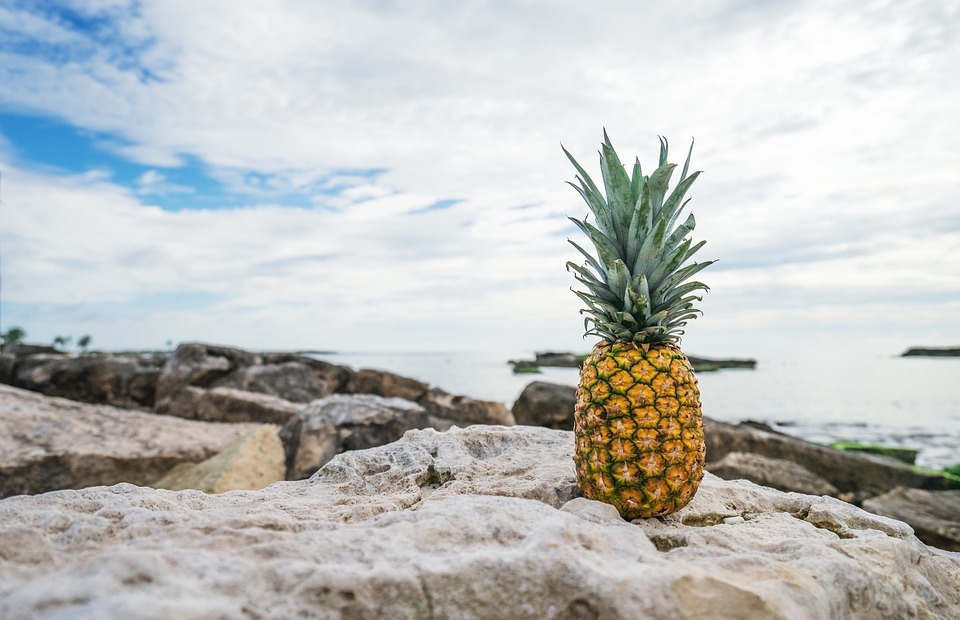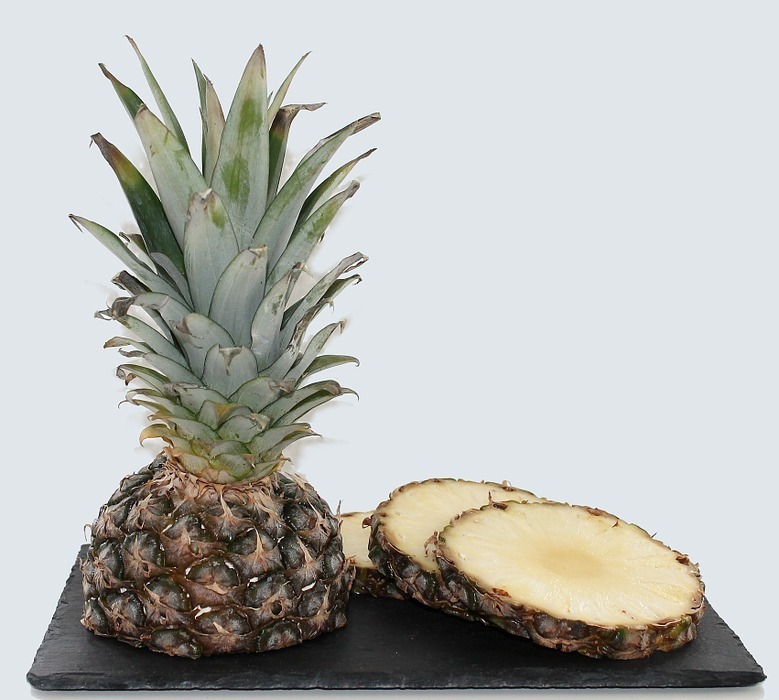This article delves into the question of whether cats can safely consume pineapple, exploring the nutritional value of this tropical fruit, potential risks and benefits for feline companions, and offering insights into how to incorporate it into a cat's diet, if at all.
Part 1: Understanding Pineapple and Its Nutritional Value

1.1 Pineapple: A Tropical Fruit with a Rich History
- Native to South America, pineapple has been cultivated for centuries, with evidence suggesting its consumption dates back to pre-Columbian times.
- The pineapple plant, scientifically known as Ananas comosus, thrives in warm, humid climates and produces a single fruit per plant.
- Its distinctive flavour, texture, and nutritional profile have made it a popular fruit worldwide, enjoyed both fresh and processed in various forms.
- Pineapple is a good source of vitamins, minerals, and antioxidants, contributing to its reputation as a healthy dietary choice for humans.
1.2 A Closer Look at the Nutritional Composition of Pineapple
- Vitamins: Vitamin C, a potent antioxidant that supports immune function; Vitamin B1 (Thiamine), essential for carbohydrate metabolism; Vitamin B6 (Pyridoxine), vital for brain function and red blood cell production; Vitamin A, crucial for vision and immune health; Folate, essential for cell division and growth; Vitamin K, involved in blood clotting.
- Minerals: Manganese, involved in bone health and enzyme activity; Potassium, important for muscle function and blood pressure regulation; Magnesium, crucial for energy production and muscle relaxation; Copper, essential for iron absorption and red blood cell formation; Iron, vital for oxygen transport in the blood.
- Other Nutrients: Bromelain, a unique enzyme found in pineapple that aids digestion; dietary fibre, which promotes digestive health and satiety; other phytochemicals with potential health benefits.
1.3 Exploring Bromelain: The Unique Enzyme in Pineapple
- Bromelain, a group of enzymes found primarily in the stem and juice of pineapple, is known for its proteolytic activity, meaning it can break down proteins.
- This property makes bromelain a potential aid in digestion, as it can help break down food molecules and make them easier for the body to absorb.
- Research suggests that bromelain may also have anti-inflammatory and anti-clotting properties, though further studies are needed to confirm these effects in animals.
Part 2: The Potential Benefits of Pineapple for Cats

2.1 Bromelain's Potential for Digestive Support in Cats
- While bromelain's digestive benefits for cats have not been extensively studied, some experts suggest it could potentially aid in breaking down proteins and reducing digestive discomfort.
- This may be particularly relevant for cats with digestive issues, such as pancreatitis or inflammatory bowel disease, though it's crucial to consult a veterinarian before introducing any new food or supplement.
- However, it's important to note that bromelain's effects on cat digestion are not fully understood, and its efficacy is not guaranteed.
2.2 Anti-Inflammatory Properties: Exploring the Potential
- Pineapple contains bromelain and other compounds with potential anti-inflammatory properties. While research in cats is limited, some studies suggest bromelain may have anti-inflammatory effects in other species.
- This could potentially offer benefits for cats experiencing inflammation related to arthritis, joint pain, or other conditions, but further research is needed to confirm its effectiveness in felines.
- As with any potential health benefit, it's essential to consult a veterinarian before using pineapple for its anti-inflammatory properties in cats.
2.3 Antioxidant Power: Protecting Cells from Damage
- Pineapple is rich in antioxidants, including vitamin C and other phytochemicals, which help protect cells from damage caused by free radicals.
- Free radicals are unstable molecules that can damage cells and contribute to various health problems. Antioxidants help neutralize these harmful molecules, supporting overall health.
- While the precise benefits of pineapple's antioxidants for cats are not fully understood, they could potentially contribute to a stronger immune system, reduced inflammation, and improved cell health.
Part 3: The Risks of Feeding Pineapple to Cats

3.1 High Sugar Content: A Potential Concern
- Pineapple is naturally high in sugar, which can be problematic for cats, especially those prone to weight gain, dental issues, or diabetes.
- Excess sugar can contribute to obesity, which is a major health concern in cats, increasing the risk of diseases like diabetes, arthritis, and heart problems.
- The sugar content in pineapple can also promote dental problems, such as plaque buildup and tooth decay, leading to discomfort and potential infections.
3.2 Digestive Upset: A Possible Side Effect
- While bromelain can aid digestion in some instances, large amounts of pineapple can cause digestive upset in some cats, particularly those with sensitive stomachs.
- Symptoms of digestive upset include vomiting, diarrhoea, stomach cramps, and gas. These symptoms may occur due to the high fibre content in pineapple or an intolerance to certain components.
- If you notice any signs of digestive upset after feeding your cat pineapple, discontinue giving it and consult your veterinarian.
3.3 Allergic Reactions: A Potential Threat
- Cats, like humans, can develop allergies to various foods, including fruits like pineapple.
- Symptoms of a pineapple allergy in cats can range from mild skin irritation and itching to more severe reactions, such as swelling, hives, difficulty breathing, and even anaphylaxis.
- If you suspect your cat may be allergic to pineapple, discontinue giving it and consult your veterinarian immediately.
3.4 Toxicity of Pineapple Core and Leaves: Avoid at All Costs
- The core and leaves of pineapple contain a substance called bromelin, which is toxic to cats. This substance can cause digestive upset, vomiting, diarrhoea, and even more serious health issues.
- Never feed the core or leaves of pineapple to your cat, as even small amounts can be harmful.
- Ensure that any pineapple you offer your cat is properly peeled and devoid of the core and leaves.
Part 4: How to Safely Introduce Pineapple to a Cat's Diet (If at All)
4.1 Consulting Your Veterinarian: The First Step
- Always consult with your veterinarian before introducing any new foods to your cat's diet, including fruits like pineapple.
- Your vet can assess your cat's individual needs, health status, and any potential risks associated with feeding pineapple. They can also provide tailored guidance on safe dosages and frequency.
- It's crucial to get your veterinarian's approval before giving your cat pineapple, especially if it has any existing health conditions.
4.2 Starting Small: Gradual Introduction
- If your veterinarian approves, introduce pineapple gradually and in small amounts. Start with a tiny piece of cooked, peeled pineapple and monitor your cat's reaction closely.
- Observe your cat for any signs of digestive upset, allergic reaction, or other adverse effects. If you notice any problems, discontinue giving pineapple and consult your veterinarian.
- Gradual introduction allows your cat's digestive system to adjust to the new food and helps minimize the risk of adverse reactions.
4.3 Choosing the Right Type: Fresh is Best
- Fresh pineapple is preferable to canned or processed pineapple due to the lower sugar content and fewer additives.
- Always choose fresh pineapple that is ripe and free from any signs of spoilage or discoloration. Wash it thoroughly before offering it to your cat.
- Avoid pineapple juice or other sugary drinks, as they are not suitable for cats and can contribute to health problems.
4.4 Frequency and Quantity: A Treat, Not a Staple
- Pineapple should be offered as a rare treat, not a regular part of your cat's diet. It should not replace their regular cat food, which provides the necessary nutrients for their well-being.
- Never feed pineapple to a cat in large quantities, as this can lead to digestive upset, sugar overload, and other health problems.
- Limit pineapple treats to occasional small amounts, ensuring they are balanced with a healthy, complete cat food diet.
Part 5: FAQs About Cats and Pineapple
5.1 Can kittens eat pineapple?
- It is not recommended to feed pineapple to kittens. Their digestive systems are still developing and may not be able to tolerate it. It's best to stick to their regular kitten food for optimal growth and development.
5.2 Is pineapple poisonous to cats?
- While not poisonous in its entirety, the pineapple core and leaves contain toxic substances. The core is especially hard for cats to digest and can cause intestinal blockages. Avoid feeding these parts to cats. Ensure any pineapple you offer your cat is properly peeled and devoid of the core and leaves.
5.3 What are the symptoms of a pineapple allergy in cats?
- Common symptoms include skin irritation, itching, swelling, and respiratory distress. If you suspect an allergy, discontinue giving pineapple and consult your veterinarian immediately.
5.4 Can I give my cat pineapple as a supplement?
- It is not advisable to use pineapple as a supplement for cats. While it contains some beneficial nutrients, the nutritional value of pineapple is not significant enough to warrant it as a supplement. Instead, rely on a complete and balanced cat food diet for all their nutritional needs.
5.5 Is dried pineapple safe for cats?
- Dried pineapple is even higher in sugar than fresh pineapple and is not recommended for cats. It's also more difficult for cats to digest and may lead to digestive problems. Stick to fresh pineapple in small amounts and only if approved by your veterinarian.
5.6 What if my cat accidentally ate pineapple?
- If your cat has accidentally eaten a small amount of pineapple, monitor them closely for any signs of adverse reactions. Look out for vomiting, diarrhoea, or any other unusual behaviour. If you notice any problems, consult your veterinarian immediately.
5.7 Can I give my cat pineapple core and leaves?
- No, never give your cat pineapple core and leaves. These parts contain a toxic substance called bromelin that can cause digestive upset, vomiting, diarrhoea, and even more serious health issues. It's essential to ensure any pineapple you offer is properly peeled and devoid of these parts.
Everyone is watching
-

Are Cat Ribs Flexible? Understanding Their Anatomy
CATS & KITTENSThis article delves into the fascinating world of feline anatomy, exploring the flexibility of cat ribs and ho...
-

Can Cats Eat Bananas? (Everything You Need to Know)
CATS & KITTENSThis article dives into the intriguing question of whether cats can safely enjoy the sweet, yellow fruit, bana...
-

Cat Lifespan: How Long Do Cats Live?
CATS & KITTENSThis comprehensive guide explores the factors influencing the lifespan of our feline companions, providing ins...
-

Can Cats Get COVID-19? What You Need to Know
CATS & KITTENSThis article will delve into the fascinating world of feline COVID-19 susceptibility. We'll explore whether ca...
-

Can Cats Eat Eggs? A Complete Guide to Egg Safety for Your Feline Friend
CATS & KITTENSWhen it comes to treating our furry companions, we all want to ensure we're doing what's best for them. Eggs...
